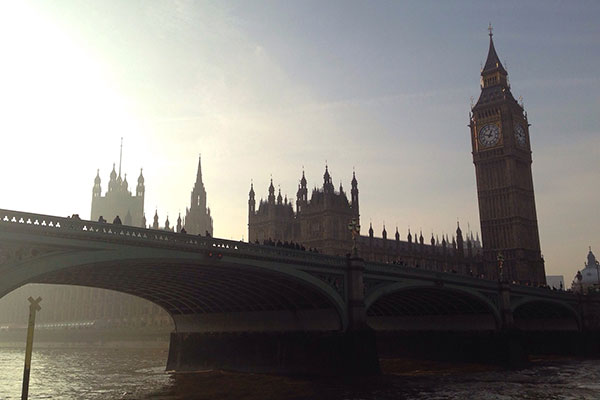What can we do about divisive and damaging attitudes to the poor? Knowing more people from other classes would be a good start.
Today sees the publication of the first report of the Social Integration Commission, an inquiry which I chair in a personal capacity. The Commission was established by the charity The Challenge and is a response to the growing diversity of the UK in terms of ethnicity, income and age. Most of us think integration is broadly a good thing but we don’t know how integrated our society actually is.
The key findings of the first report focussed on a survey of the social interactions of over 4,000 people. Headlines included the fact that very diverse areas – like London – aren’t necessarily very integrated: Just because you live in a mixed neighbourhood doesn’t mean you have mixed social networks. Overall, people have about 40% fewer interactions with different ethnic groups than if their networks were chosen at random.
Also, it seems that life stage and the institutions we inhabit are important to integration. While 13-17 year olds are not very ethnically integrated, 18-34 year olds do much better. But the latter group are poor at inter-generational integration, perhaps reflecting the time they spend socialising and studying with a diverse group of other young people.
But for me the finding that most stood out concerned integration along lines of class and income. Overall, the integration scores look pretty good, we have only about 15% fewer interactions with other classes than if we chose friends at random. However things are much worse at the extremes. Social grades A and B – professional and higher managerial – have a third as many interactions with those who are unemployed as would be expected randomly.
Given that about 40% of jobs are found through word of mouth this disconnection between the employing class and the out of work could play a big part in social exclusion. But there is another consequence.
As Robert Walker argues passionately in this morning’s Guardian, attitudes to the poor in the UK seem to be getting ever more punitive. ‘Why’ he asks ‘do politicians continue to abuse the weakest members in our society?’, before answering his own question; ‘in a society characterised by gross inequalities, it allows the privileged to vote in accordance with their own self-interests, free of guilt’.
A comparative take is offered by Danish social scientist, Christian Larsen whose analysis demonstrates the mutually reinforcing relationship between national welfare regimes and attitudes to the poor. In essence the more punitive the regime the less the poor are seen as deserving. Whereas in countries like the USA and the UK the poor are often seen as a feckless underclass, in countries with more generous systems the disadvantaged are perceived as ordinary folk who have fallen on hard times. Hostility to immigrants may change this picture but Larsen’s finding does undermine the argument that making welfare more punitive will help to rebuild its legitimacy.
The Social Integration Commission will now move on to explore the consequences of integration and segregation before making recommendations for action by Government, civil society and individuals.
In talking about the Commission I have reflected on my own experience. When I was involved in youth football coaching I had many more friends who were from different ethnicities, classes and ages (the players were teenagers and their grandparents often came to watch). But since I stopped coaching and since I moved into the ever more hideously gentrified environs of Clapham Common my networks have become much more homogenous.
Reflecting on what I could do to have a social circle more like the mix of my city two surprising words sprang to mind: politics and religion. I am not a believer but going occasionally to the local Catholic church with my partner is like attending a grass roots United Nations. Also, while it’s long time since I was a local political activist I remember that Labour Party meetings too were a pretty good mix of local people. An irony indeed that we might rely on those great historical sources of sectarian conflict - ideology and God – to bring us together in the modern world.
Related articles
-
What does the future hold for progressive politics after the Conservative victory?
Anthony Painter
The election, a decisive victory for Brexit and Johnson’s Conservatives, draws a curtain on a decade of disillusion.
-
How can we get BAME workers to climb the leadership ladder?
Adarsh Ramchurn
A lack of opportunities, discriminations, and the absence of role models are keeping minority candidates out of leadership positions. Companies, and particularly charities, need to do more.
-
Why representation matters: diversity in networks and the RSA Fellowship
Kavya Menon
Why diversity in networks matters – and how you can help.




Be the first to write a comment
Comments
Please login to post a comment or reply
Don't have an account? Click here to register.